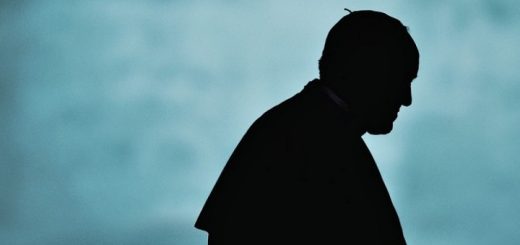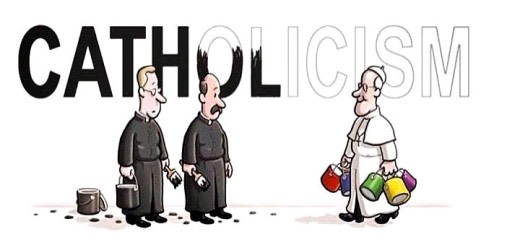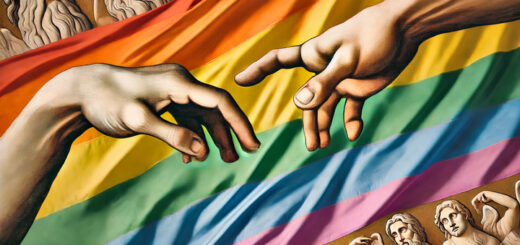Overcome the exclusion of the 'different' to create an inclusive church
 Riflessioni di Paul W. Egertson*, Vescovo della Chiesa Evangelica Luterana in America, lette alla Building An Inclusive Church Conference, Minneapolis (Minnesota, Usa), il 17 aprile 1999, liberamente tradotte da Bruno
Riflessioni di Paul W. Egertson*, Vescovo della Chiesa Evangelica Luterana in America, lette alla Building An Inclusive Church Conference, Minneapolis (Minnesota, Usa), il 17 aprile 1999, liberamente tradotte da Bruno
Probably many of you have had the opportunity to see Kevin Costner's film on Wyatt Earp.
To help the viewer understand the adult behavior of this intensely loyal man to the family and his hostile distrust of all the others, the film shows us some scenes of his childhood.
Most of us seem to know by instinct. There are few things that we are naturally afraid more than what is not familiar to us. This is such a universal fear that we gave her a name: xenophobia - the fear of the foreigner.
The name derives from the Greek word 'Xenos' which indicates what is foreign, foreigner, different, strange in general: it indicates everything that is outside the boundaries and environments that are familiar to us.
Think of the way we observe foreigners, the different, the strangers among us. We are on the defensive towards them and we do everything to protect ourselves from them.
Among the good advice that we give each other in this regard it is worth remembering the persistent warning of our parents: "Do not speak with strangers" or that of the police, who asks us to report the presence of strangers.
Our natural fear of the foreigner and social conditioning towards those who do not know are closely linked to each other.
With these warnings in the ears, our first line of defense is exclusion. Keeping us separated by them we feel safer. So we keep as much as possible away from those who are different from us.
The rich are away from the poor; the healthy of the sick, the young people with old men, ethnic majorities from minorities; The free from prisoners, the strong from the weakest.
And the description of our separations could continue; But the point is always the same: if the others are different from me, then they are bad or wrong or unworthy, therefore they must be excluded from my life and society.
Someone will say that this description is no longer true in our society. We live in a generation that considers diversity positive, which gives value to the differences between men, which honors multicultural experiences.
The password today is inclusion, no more exclusion, at least among those who are politically and religiously enlightened. If it is true that in some countries, residues of the spirit of exclusion with which the past generations dealt with the different ones may survive, most of us have now overcome it.
After the laws approved in the last years of the twentieth century, for example, there is no longer any state in the USA where the law prohibits people from different races to love each other. There are no more strangers among us: we become a single big happy family.
Is it really the case? Or is there still a class of people who continue to experience exclusion in the middle of our inclusiveness just made? Robert Dawidoff, professor of history at Claremont University, thinks there is: he calls this group of people the last out of caste.
The Washington Post also thinks: based on a national survey conducted jointly by the newspaper, by a cultural foundation and by the University of Harvard, a recent article states that the Americans "have radically modified their moral sensitivity in the last 30 years, reviewing the judgment on people and lifestyles that were once ready to condemn.
The majority finds divorce, sex before marriage, interracial relationships and single parentality now acceptable. But homosexuals constitute the only group whose behavior remains firmly outside the limits of acceptability for the majority of the Americans. "
Do we need studies and investigations that tell us? Any homosexual person we meet, and who has not completely managed to hide the reality of his sexual orientation, can tell experiences of exclusion that heterosexual people frankly struggle to believe.
"Nobody needs to say to the Latin American boys of high school who does not matter if they are Hispanic or not: that they notice for themselves. To Jewish children it is not said that they are sinners and that they could become Christians, if they wanted it.
People do not tell the black boys who have to endure racism, because basically they have made a long way since they were slaves; There is no need to explain why there is a month dedicated to the history of blacks, or for topics related to color people in the school curriculum.
It is not said "This is precisely Korean stuff!" To indicate something stupid or strange. And it is not said to the disabled children that the community is not yet ready to defend their rights of equality and inclusion.
You will never hear anyone claim that breast cancer is the way of God to kill women, or that it is a good thing.
If a teacher feels anyone who insult a Chinese child with some typical nickname, he intervenes promptly. When visiting students are informed with the teachers on how to ask school girls appointments, they are not sent by a school psychologist.
“But every day in high school, I feel I say that there is no problem if I am gay, until I remain hidden; that I am an abomination against God; that I can change if I want; that you should not speak to people like me at school.
They tell me that I should be satisfied because our school has opened very much, and that I should not push beyond my request for equal rights and inclusion, because society is not yet ready.
I hear so often "This is really gay stuff!" And that AIDS is my punishment to be what they are, and I feel like "fennel" continuously. It is not easy to avoid being permanently angry "
If the Americans are serious when they say they want to build an inclusive society (and I understand that this was the American dream), they will need a lot of people to guide others beyond this last frontier of fear, giving an answer to people who are different.
If Christians are serious in wanting to build an inclusive church (and the first word should contain the second in itself, according to the Bible I know), we have a special challenge to face.
Because it must be admitted that Christians have been largely responsible if the people of this country are unable to accept the latter out of caste. As emerged from the survey mentioned above, most Americans who find homosexuality unacceptable say they oppose religious reasons.
But do we need surveys to know? Recently, it has gone from San Francisco Nancy Hanson, author of the book "From pain to joy - words inspired by hope and healing".
Being for the first time in the city, he spent Easter in the Castro district of San Francisco, in the heart of the gay/lesbian community, giving free copies of his book to anyone who was willing to receive it. While he was there, he reports that he saw a shirt with the slogan: Jesus hates me, I know this, because Christians tell me.
Reflecting on his experience with the homosexual community of Castro on Easter Sunday, Nancy Hanson tells the condemnation that she herself had undergone at the hands of a friend of good intentions.
She was in the middle of a cause of divorce and her friend told her that she had been deceived by Satan, going against the Word of God and that she behaved as a great selfish.
This had given her a taste of the scum that gay and lesbian people had to swallow at the hands of the armed Christians of their bibbies.
But after spending the day with the gay community, he said, "the spirit of love from the good souls I encountered took me up all day".
Then he made a comparison between his friend "who believed in the Bible" and the strangers of San Francisco. Referring to her friend, she wrote, “in less than an hour, I felt wounded and canceled by her words.
After eleven hours with people on Castro Street, I felt excited, happy, loved, accepted and certainly supported. Jesus loves me, I know this, because the people of Castro Street showed me that it is so "
For many Christians, condemning and excluding these different among us appears normal and natural, it does not seem strange to do so at all. Instead, it would seem strange if someone arrived among us, who kept a completely different attitude towards those who are different.
Prayer
Almighty and eternal God, you hate nothing of what you have created and forgive all those who regret.
Create and place a new and contrite heart in the Church that, crying the discrimination practiced against the faithful and gay clergy, lesbians, bisexuals and transgender, can receive mercy, forgiveness and perfect peace from the god of each, through Jesus Christ. Amen.
* The reverend Paul Egertson He was appointed bishop of the Lutheran Evangelical Church in America (Elca) in January 1995. He had previously been parish priest for 21 years in California and Nevada. He was director of the Theological Studies Center in Thousand Oaks, California, for 13 years and professor of religion at the Lutheran University of California for 10 years. Graduated from Pepperine College (Los Angeles) has achieved a master's degree at the Luther Theological Seminary of St. Paul, and a degree from the Claremont (California) theology school of theology (California)
At the Theological Studies Center he taught in the courses for the laity addressing the theme "homosexuality: taking a second look." In 1992, he received the Voice of Faithfulness prize from Lutheran Lesbian and Gay Ministry (San Francisco). He and his wife have six children and four grandchildren.
Original text: Passage taken from The Stranger in Our Midst






